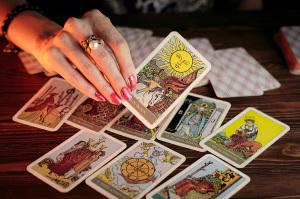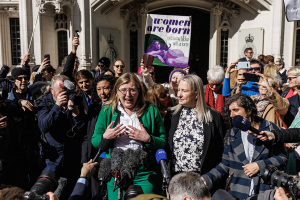Why Making a New Year's Resolution Is a Good Idea
The start of a new year is always an opportunity. It is a fresh beginning, a new chapter, another chance to get it right. Why would anyone not take advantage of such a moment? Some will say it is not good to make resolutions because no one ever keeps resolutions. But that is not true.

John Norcross, professor at the University of Scranton, has written on change and is an expert on new year's resolutions. He says that at the six-month period of a resolution, 40 percent of people are still keeping their resolutions. Furthermore, other research shows if you make the same resolution three years in a row, there is a high probability it will actually happen.
The most popular resolutions year after year are having finances in order, getting healthier, making a marriage better, breaking bad habits and being closer to God. Many of those resolutions have a focus on the individual — and some say this is another thing wrong with making resolutions: It is wrong to make resolutions that are focused on yourself and not on others. This kind of either/or thinking does not help anyone.
Here is a resolution for this new year: Stop thinking either/or and start thinking both/and. Why couldn't you have resolutions focused on your own life as well as on how you are going to help others? Both can certainly happen. This one shift in the way you think and the way you look at life could have an amazing impact on your life in the new year.
You can focus on yourself and focus on others. For instance, if you were to focus on your health and getting healthier you could become a better father or mother to your children because you would have more energy. You could also live longer and be able to help more people because you have better health.
What major organization that has any degree of success doesn't annually evaluate? Successful organizations are in the business of evaluation. They look at their year. They look at where they are strong. They look at where they are weak. They look at emerging opportunities. They look at changes that have to be made. Why would an individual not do the same thing? Evaluate yourself; see where you need to make positive change in your life. Or maybe you already know. You know what it is you want to do. You know what it is you want to change. After evaluation you can make the resolutions. A resolution is really nothing more than a goal.
A new year is a great opportunity because it is a fresh start. It is an exciting new chapter yet to be written about your life. Why not take advantage of it? If you are not happy at the end of the new year, if you are frustrated, you will have only yourself to blame, because at the beginning of the year, you were given a marvelous opportunity to do something positive with your life and you took a pass. I hope you won't do that.
After evaluation and making a resolution, the process is not over; in fact, it has just begun. Diligence is required. Success lies in committing yourself to your resolution until you accomplish it. Lots of people have hopes and aspirations for many things that never happen because they are just not diligent enough to follow through.
Realize there will be setbacks. To think accomplishing a resolution is going to be easy sets you up for failure. Sometimes you will find yourself in situations you didn't anticipate and things happen that you weren't ready for, so you might have a little setback. For example, your health resolution might be challenged because you got sick and didn't work out for a week. Then when you got back to work an associate brought in her famous triple-fudge brownies and you devoured them. You just had a setback, and now you need to bounce back. You can do it. Everybody has setbacks; no one achieves a goal without some challenges along the way. There is no reason to quit or give up on what you've resolved to do.
This is the process: Evaluate your life, make resolutions, realize you'll have setbacks and be diligent with your goal. The result could be the best year you have ever had.





























